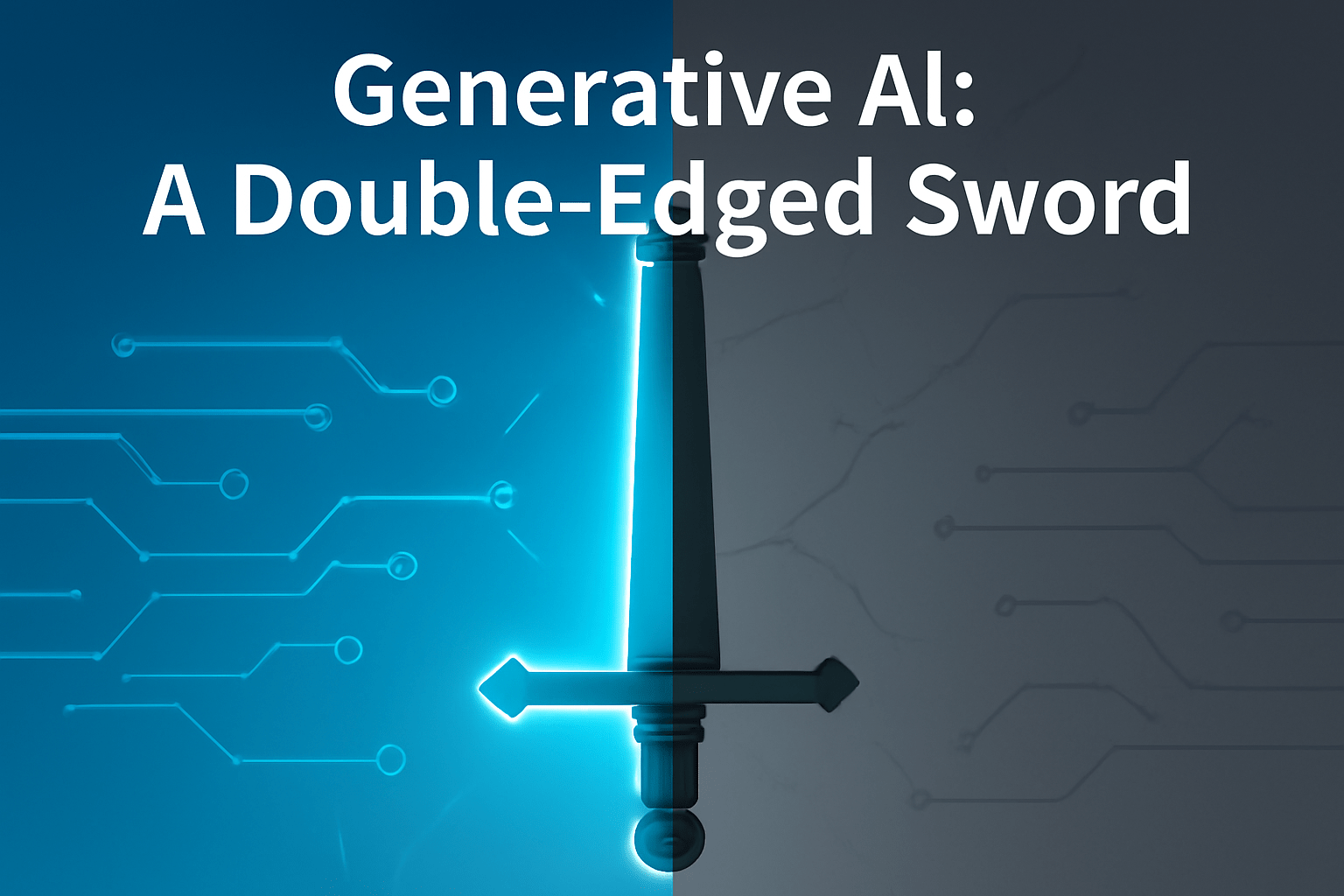Generative AI: A double-edged sword

Rapidly reproducing AI has taken the world by storm, capable of human-like text, images, and even music. While these developments are undeniably impressive, it is important to maintain a balanced view. While Generative AI is a powerful tool, it is not a complete panacea. Its capabilities are impressive but circumvented, and the potential pitfalls are significant.
To truly harness the benefits of generative AI, we need to understand its limitations and develop strategies to mitigate its shortcomings. Only then can we responsibly incorporate this technology into our lives and our society.
The Magic of Generative AI
Generative AI is revolutionizing the way we create. These wonderful examples can be anything from poems to paintings. Tools like OpenAI’s GPT and DALL-E are mind-blowing, writing a story or crafting art in seconds. From entertainment to health, almost no area is without possibilities.
Magic itself depends on its ability to mimic human creativity. Executives see dollar signs in the saved costs and incremental increases in productivity. It is an arena of endless possibilities for individuals, stimulating imagination and innovation.
The Reality Check: Generative AI's Limitations
Data is King
Generative AI models are creatures of habit. They learn from the data they're fed, and if that data is skewed, so are the results. This can lead to AI systems spitting out biased, inaccurate, or even harmful content.
Lack of Understanding
These models are fantastic at pattern recognition but clueless about meaning. They might write a convincing essay, but it could be nonsense dressed up in fancy words. This lack of comprehension can lead to errors and misinformation.
Ethical Minefield
Who owns the AI-generated content? How do we stop it from creating fake news or infringing on copyrights? These are just a few of the thorny ethical questions surrounding generative AI.
Power Hungry
Training these models is like running a small city. The energy consumption is massive, raising environmental concerns. Plus, the hefty price tag puts it out of reach for many.
Creativity Constrained
While impressive, generative AI is more of a remixer than a true innovator. It can create new combinations of existing ideas but struggles to think outside the box. Human ingenuity still reigns supreme when it comes to groundbreaking concepts.
Building the Foundation: Spreading Responsible AI
Education and Literacy
- AI literacy: Promote understanding of AI capabilities and limitations among the general public.
- Critical thinking: Develop educational programs to equip individuals with the skills to evaluate AI-generated information critically.
Ethical Guidelines and Standards
- Industry-wide standards: Establish clear ethical guidelines for AI development and deployment.
- Third-party audits: Implement regular audits to assess AI systems for compliance with ethical standards.
Governance and Regulation
- International cooperation: Foster global collaboration on AI governance to address cross-border challenges.
- Balancing innovation and safety: Create regulatory frameworks that encourage innovation while mitigating risks.
Data Privacy and Security
- Data protection: Strengthen data privacy laws to protect individuals from misuse of personal information.
- Cybersecurity: Develop robust measures to safeguard AI systems from cyberattacks.
Social Impact and Equity
- Digital divide: Address inequalities in access to AI technology and its benefits.
- Job displacement: Implement policies to support workers affected by automation.
Environmental Responsibility
- Energy efficiency: Encourage the development of AI models with lower energy consumption.
- Sustainable hardware: Promote the use of environmentally friendly hardware for AI systems.

